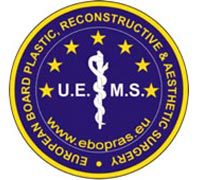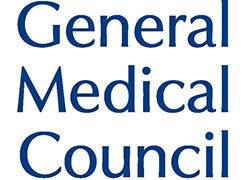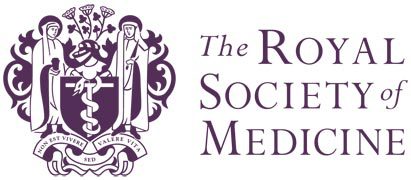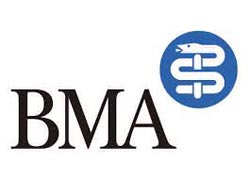Male Pectoral Implants

Pectoral implants are an increasingly popular choice for those looking to create definition in the chest area. The underdevelopment of muscles in your chest can be the result of a medical growth defect or injury. Some body types do not develop chest muscle tone as others, leading to dissatisfaction and sometimes embarrassment.
Why choose pectoral implant surgery?
Many men find they are not able to build their desired look simply by working out at the gym. If your chest lacks tone, firmness and contours, pectoral implant surgery could be for you. The addition of implants can give excellent definition to your chest, giving you the body shape you desire.
- Read More
WHAT CAN PECTORAL IMPLANT SURGERY ACHIEVE?
-
Definition in the chest
-
A firm and flexible feel
-
An increase in confidence with chest appearance
-
Creates balance with other more built up areas of the body
WHAT ARE THE ALTERNATIVES TO PECTORAL IMPLANT SURGERY?
Your surgeon will speak with you about any possible alternatives to pectoral implant surgery in your personal consultation, so you have all the available options and information before committing to a procedure.
BEFORE YOUR PECTORAL IMPLANT CONSULTATION:
Excellent communication between you and your surgeon is the key to feeling informed and confident about your surgery. Before the surgery, you will meet for a personal consultation to go through all your questions and queries, leaving you relaxed and ready for your procedure.
DURING YOUR PECTORAL IMPLANT CONSULTATION, YOU WILL:
-
Have the opportunity to ask Dr Cotrufo for advice and to pose questions about the surgery
-
Explain the reasons for seeking surgery
-
Complete a full health evaluation and chest examination
-
Discuss the surgical and non-surgical options that are open to you, including costs and timescales
You may be asked to make a few lifestyle changes in the run-up to your surgery. This is to make sure you are in the best possible heath before your pectoral implant procedure.
This may include:
-
Avoiding aspirin, herbal supplements and anti-inflammatory drugs
-
Stopping smoking
-
Refraining from any stringent diets
-
Adjusting or taking certain medications
-
Stopping drinking alcohol
-
Avoiding overexposure to the sun, especially across your chest area
THE PECTORAL IMPLANT PROCEDURE:
-
The time required for surgery depends on the type of anaesthesia and technique used
-
Pectoral implant surgery normally takes about 2 hours
-
The method of inserting and positioning the implant will depend on your preferences, anatomy and your surgeon’s informed advice
-
Normally the incisions are placed under the armpits and closed with sutures for maximum discretion
-
Implants are placed underneath the muscle and positioned to look as natural as possible for the optimal cosmetic effect
AFTER YOUR PECTORAL IMPLANT SURGERY:
-
You will need to stay in the clinic overnight. We advise a friend or relative drives you home and are on hand to aid your recovery over the first few days
-
You should walk as soon as you feel able
-
You may notice some bruising at your chest, which is to be expected, and should subside in about 7-14 days after surgery
-
After around 2 weeks you should be able to gauge how your new pectoral implants are going to look
-
You are likely to feel tired and sore for a few days following your surgery, but you will be up and around in 24 to 48 hours
-
A schedule of aftercare appointments with Dr Cotrufo will be put in place for you to attend, the cost of these appointments is included in your surgery fee
-
While in recovery, you should try to avoid:
-
Hot and spicy food
-
Vigorous exercise
-
Activity that is strenuous
-
Heavy lifting
-
All of these activities should be avoided for at least 1 month
STILL HAVE QUESTIONS ABOUT THIS PROCEDURE?
As well as being an expert in plastic surgery and reconstructive microsurgery, Dr Cotrufo specialises in aesthetic breast surgery including the pec implant procedure. He will be a part of the surgical process from consultation, to surgery and throughout your aftercare.
If you would like to discuss this surgery, and the level of service you can expect to receive, please call 0207 873 2330 to organise a consultation.
Male Breast Reduction

Gynecomastia is the medical term for breast overdevelopment in men and, although rarely talked about, this condition is very common. If you would like a flatter, firmer and better-contoured chest, the gynecomastia procedure could be right for you.
Most cases of gynecomastia visit Dr Cotrufo in Harley Street between the ages of 20 to 30 years old. Usually patients have either a congenital “deformity” or they are affected by some forms of hormonal unbalance. Those two categories are different because they have different breast sizes. Major cases of gynecomastia will need a formal excision of the breast gland along with the excess of skin. Dr Cotrufo recommends VASER liposuction alone for all moderate or minor cases with good skin elasticity. VASER liposuction will allow excellent skin contracture of your chest wall along with a very homogeneous result.
Why choose gynecomastia surgery?
For men who feel self-conscious about the appearance of their chest area, male breast reduction surgery, also known as a ‘moob job’, can improve the shape of the chest and give better contours. The gynecomastia procedure can also improve your confidence, as you start to enjoy the chest you’ve always wanted.
- Read More
WHAT CAN GYNECOMASTIA SURGERY ACHIEVE?
-
A solution for the abnormal increase in glandular tissue
-
A flatter and better-contoured shape to your body
-
Improved confidence in your appearance
-
A better fit for clothing across your chest
-
Quick results (once swelling has subsided)
WHAT ARE THE ALTERNATIVES TO GYNECOMASTIA SURGERY?
Your surgeon will speak with you about possible alternatives to gynecomastia surgery such as VASER liposuction to the chest during your personal consultation.
BEFORE YOU GYNECOMASTIA PROCEDURE:
Excellent communication is the key to feeling informed and confident about your surgery. Before the procedure, you will have a consultation with your surgeon to go through all questions and queries, so that you are relaxed and ready for the surgery.
DURING YOUR GYNECOMASTIA CONSULTATION, YOU WILL:
-
Have the opportunity to explain your reasons for seeking gynecomastia surgery.
-
Be given time to ask advice and pose questions to Dr Cotrufo
-
Undergo a health evaluation and chest assessment.
-
Discuss the options that are open to you, including costs and timescales.
To make sure you are in the best health before your gynecomastia surgery, you may be asked to make lifestyle changes or to avoid or take particular medications.
This may include:
-
Taking a blood test or other medical tests
-
Refraining from any stringent diets
-
Stopping smoking
-
Adjusting or taking certain medications
-
Avoiding aspirin, herbal supplements and anti-inflammatory drugs
-
Refraining from drinking alcohol
-
Avoiding overexposure to the sun, particularly to the chest area
THE GYNECOMASTIA PROCEDURE:
-
The surgery will take 1-2 hours depending on the individual anatomy, volume of fat and level of asymmetry between the two breasts.
-
In a typical procedure, an incision is made in an inconspicuous location, either on the edge of the areola or under the arm, from here the surgeon will remove excess glandular tissue, fat and skin.
-
Dissolving sutures will be used to seal incisions, so there’s no need to worry about their removal.
AFTER YOUR GYNECOMASTIA SURGERY
You are likely to feel tired and sore for a few days following your surgery, but you will be up and around in 24 to 48 hours.
After that:
-
You should walk as soon as your feel able
-
Your chest will be wrapped in bandages or fitted with an elastic pressure garment to keep the skin in position and protected during healing
-
You will need to wear your support garment for around 4-6 weeks, day and night.
-
Most patients can resume full activity, including exercise, around 1 month after surgery.
-
It is important not to carry out vigorous activities for the first 5-7 days after surgery and you may need to avoid certain activities, as advised by your surgeon.
Dr Cotrufo will always be there for your aftercare, making sure that you are healing correctly and that the end result is the best achievable during your aftercare appointments, which are included in your surgery cost.
STILL HAVE QUESTIONS ABOUT THE GYNECOMASTIA PROCEDURE?
Dr Cotrufo is an expert in plastic surgery and reconstructive microsurgery. In particular, he specialises in aesthetic breast surgery including the gynecomastia procedure. In addition to carrying out hundreds of breast surgery procedures, he has been asked to act in a consultancy role to the medical supply industry and has spoken about breast surgery at a number of industry conferences. If you would like to discuss your suitability for this surgery and the before and aftercare you can expect to receive with Dr Cotrufo, please call 0207 8732330 to organise a consultation.
© 2023 Dr Stefano Cotrufo | All rights reserved
© 2023 Dr Stefano Cotrufo | All rights reserved






